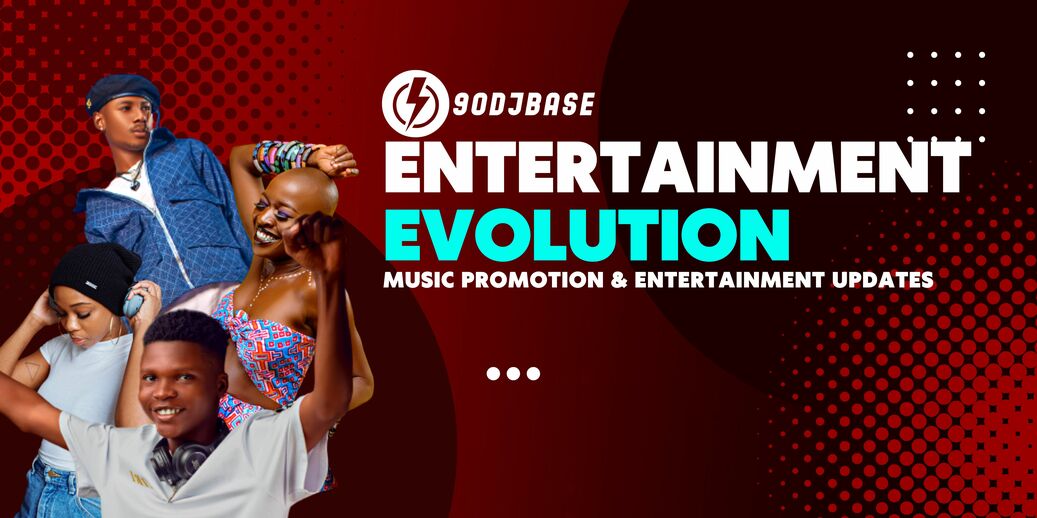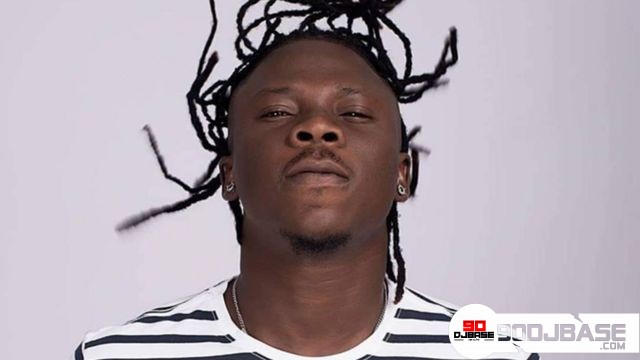Stonebwoy: The power of origins [Pulse Interview]
When Stonebwoy was in his teens, he met Rastaman and his crew, and they changed his life forever. While his mom initially had reservations about his association with people that were not essentially his family, she later warmed up to the idea because that particular set of people gave him a sense of belonging.
Born Livingstone Etse Satekla, that set of people gave him the name Stonebwoy. They took the ‘Stone’ out of his name, Livingstone and added ‘Bwoy’ for Creole effect.
“It was going to be Rudebwoy, but I was like ‘Rude?’ ah… I then felt I’d just keep the ‘Stone’ from my name over there and add the ‘Bwoy’ for desired effect,” he jokes. “I actually think all the African artists who have ‘Boy’ in their names should pay royalties to me [shrugs and laughs]. But my ‘boy’ has a ‘w,’ so it’s ageless. So I guess that differentiates me [laughs].”
That movement also influenced his Afro-Dancehall style of music. Till this day, he still follows the Rastafarian movement.
Over the past 10 years, he has released four studio albums and numerous international awards while also starting his own label, Stonebwoy laughs off suggestions that he’s becoming an OG.
“I think I have been here before other people, but ‘OG’ comes with a lot of things. I believe these terms get thrown around these days. Maybe there are cadres, but I feel like I’m not in that realm yet,” he says.
Working with Davido, Zlatan and Cuppy
Davido and Stonebwoy have always known each other because they are fans of each other. First, their relationship started through Instagram DMs and then they met each other for the first time. Since then, they’ve wanted to make songs together but situations never really allowed that to happen.
In fact, there was one occasion where the song was recorded but then the file ended up being corrupt. Due to the fact that the culprit is a frequent Stonebwoy collaborator, the Ghanaian star forgave him and kept it moving. Finally, they are here with ‘Activate.’
On his album, Anloga Junction, Stonebwoy also worked with Zlatan. Produced by Nigerian beatmaker, Phantom, the beat was made in Gambia, but Zlatan recorded his part in Lagos.
With Cuppy, who featured Stonebwoy on her album, she came to Ghana with producers with the aim of working with the Ghanaian superstar.
“I like to help people, you would be amazed at the type of people I’ve written songs for,” he says. “We did the song and wrote it for her, but the most important thing is that she’s happy and pushing what she believes in. For me, it means I’m able to use my platform to support other artists.”
For Stonebwoy, aiding people is “the natural thing” to do because everybody needs somebody.
“If you can help people, help people. If you can’t then don’t do it,” he says.
Afrobeats to the world
Stonebwoy is a Grammy nominee. This year, he got a certificate of nomination after Avrakedebra by Morgan Heritage got a nod in the Best Reggae Album category at the 2017 ceremony. This comes after Shatta Wale was featured on Beyonce’s Lion King: The Gift album.
A lot of people tend to ignorantly think ‘Afrobeats to the world’ is just a Nigerian thing, but it’s not. A lot of African artists are part of this contemporary journey, but Stonebwoy is quick to point out the wrong notion that ‘Afrobeats to the world’ is novel.
“I believe in ‘Afrobeats to the world,’ but Afrobeats has been making it to the world before our era and we have to be truthful about that. We can’t bring it here, if it wasn’t somewhere before we picked it up,” he enthused. “Big respect to the founding fathers – from the Highlife era, before it became Afrobeat. Now, our sound is called ‘Afrobeats.’ Maybe in the next 40 years, it will be called something else.”
“One thing we can’t deny that the fire has been burning since the time of Ghanaian Highlife artists who created an invasion and influenced the great Fela,” he continues. “Fela then flew it away to the shores of America and Europe.”
But then, Stonebwoy feels like a positive from ‘Afrobeats’ is the ‘s’ suffix which makes it easier to fuse African pop sounds with other influences. He feels the ‘s’ broadened the horizon – per description, which might have been hard without the ‘s.’
Ghana vs. Nigeria
Stonebwoy then highlighted the unfairly downplayed influence of Ghanaian Highlife in this entire journey. On social media, Nigerians and Ghanaians have often gotten into bant-ridden squabbles over superiority and whatnot.
“We are the same and I don’t think that’s fighting, but we should also be able to recognize origin stories. Without knowing where you are from, you can’t know where you are going,” Stonebwoy says. “It’s just like saying you now, Motolani Alake and Stonebwoy… we look alike and therefore, our names don’t matter. Of course our names matter.”
“It matters for documentation and accuracy of history. Understanding our history is now where our brotherhood should eradicate any bad blood and give us the platform to be honest,” Stonebwoy continues. “If the credit goes to Ghana, leave it to Ghana. If it goes to Nigeria, leave it to Nigeria – we are the same.”
Stonebwoy then praises a recent video where legendary Nigerian actor, Pete Edochie was breaking down the origin of Afrobeat, with backstories on Ghanaian Highlife.
“If there is one thing Ghana did right, let us chop our credit now [laughs],” he jokes.
“Of course, I always say that whatever Afrobeats has become today, Nigeria made it so,” he closes.
Music streaming in Ghana
Sub-Saharan Africa is still a large download market where streaming is only starting to make a headway. Others might see music streaming as a means of music consumption, but Stonebwoy sees streaming as something that, “makes sure that your income comes to you directly.”
He continues, “Once you get the right link, distribution channels and rights holders, you are going to get your music heard and you will get the money that comes from that. That’s the positive side of streaming, but we still have some way to go as regards putting the right structures in place to make sure that streaming is totally beneficial.”
While Stonebwoy doesn’t necessarily agree that it’s a negative, he highlights some of the perceived negativity around streaming in Ghana.
“Some people feel like the inability to sell physical CDs like in the old days is a problem because the funds can be easily tracked and calculated,” he says. “These days, you are looking at decimals and extreme calculations. Thankfully, the artist doesn’t do that, but I don’t see the problem. With the emergence of the internet, we were always going to migrate to online platforms.”
Stonebwoy also feels like victory over piracy is key for all African markets. To him, if streaming guarantees that and income streams, then there’s not much to complain about. Nonetheless, Stonebwoy feels like there are still avenues for exploitation in the streaming era and that African artists need to negotiate properly.
COVID-19 and events
Like in Nigeria, December events in Ghana are also uncertain. It’s also made more interesting by how Ghana just concluded its Presidential elections. Stonebwoy had a show planned for December, but due to COVID-19, everything was on pause as of the day this interview was conducted.
Nonetheless, Stonebwoy did the BEAM Friday in November and he ht do one for December outside Accra, Ghana.
Right now, Stonebwoy doesn’t know if he will release an album next year. Right now, he simply wants to see the performance of ‘Activate’ featuring Davido.





